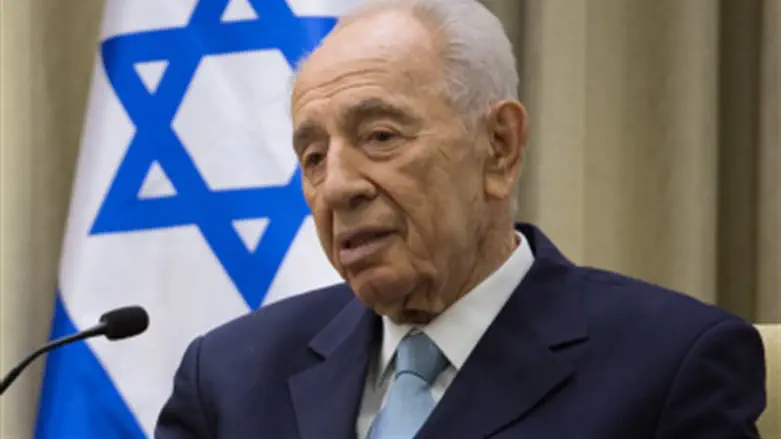
Professor Yisrael Steiner, the director of the Neurology Dept. at the Beilinson Hospital says to Arutz Sheva that the next few days will be critical for Shimon Peres who suffered a stroke on Tuesday and is in serious condition at Sheba Hospital.
"Shimon Peres taught us how energetic he was despite his age - 93, how he refused to age and continued to contribute with a lucid brain. At that age most of us are not here. Peres has an impressive biology, a strong character and willpower and these are important players for him," says Steiner.
At this stage Steiner says we need to wait and see how Pere's body will function. "According to the information we have at present, his body is coping, the heart is working, he has blood pressure, pulmonary and kidney functions. The systems are functioning but the next few days will be critical to see how the body fulfills its tasks and what will happen further."
Prof. Steiner described what a stroke is and what happens as a result. "Damage is caused to the brain's membrane when a blood vessel bringing blood and oxygen to the brain is clogged. As a result the membrane does not receive what it needs and it can be damaged or die."
He said that "A blockage in a blood vessel is caused by arteriosclerosis. There are a number of reasons for this like diabetes, high blood pressure, smoking and lack of physical activity, which can cause a blood clot to form on the artery which clogs up the artery. Lack of blood supply causes death of the membrane."
"Another possible stroke scenario could stem from a clot from the heart which reaches the brain membrane and gets stuck inside a blood vessel and this too could cause membrane death.
"A third possible scenario could internal bleeding due to high blood pressure or problems with blood coagulation, sometimes caused by taking blood thinning medicines. If it forms in the brain membranes it could cause damage," he explained.
Professor Steiner said he doesn't know what caused the former president's stroke and does not know if there was a blocked blood vessel or internal bleeding. He said that in older people it could be a combination of both things.
He added that claims of a link between blood thinning medicines and strokes are speculative, since "there are no medicines without side effects, whether they are for high blood pressure, diabetes or blood thinners. Whenever you proscribe a medicine for a patient you have to decide whether the utility outweighs possible damage."
"I don't know whether Mr. Peres was receiving blood- thinner medicines. Even in the case of Ariel Sharon, despite the fact that we have learned a lot over the years we do not know the precise connection between the things. The only connection between the cases of Peres and Sharon is that both could be defined as having suffered strokes.", he concludes.
